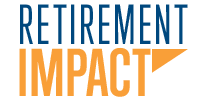Fiduciary governance plays a crucial role in ensuring that 401k plans comply with the Employee Retirement Income Security Act (ERISA) regulations. By establishing strong fiduciary governance, CFOs can mitigate the risk of potential liabilities and safeguard the interests of their employees.
ERISA requires that plan fiduciaries, including CFOs, act solely in the best interests of plan participants and beneficiaries. Failure to fulfill this obligation can result in serious consequences, including potential lawsuits, regulatory penalties, and reputational damage. Therefore, it is essential for CFOs to understand how fiduciary governance can help them fulfill their fiduciary duties and avoid potential liability under ERISA.
Fiduciary governance involves establishing and implementing a set of procedures and processes that enable plan fiduciaries to manage their responsibilities effectively. This includes defining the roles and responsibilities of plan fiduciaries, establishing investment policies and procedures, monitoring plan performance, and conducting regular fiduciary training and education. By implementing a robust fiduciary governance framework, CFOs can ensure that they are fulfilling their fiduciary obligations and reducing their liability under ERISA.
- Minimizing Conflicts of Interest: A strong fiduciary governance framework includes policies and procedures that help minimize conflicts of interest. This includes establishing clear guidelines for selecting and monitoring plan investments and service providers. By doing so, CFOs can reduce the risk of potential conflicts of interest and ensure that their decisions are made solely in the best interests of plan participants and beneficiaries.
- Ensuring Investment Diversification: ERISA requires that plan fiduciaries ensure that plan investments are diversified to minimize the risk of large losses. Fiduciary governance can help ensure that the plan’s investment portfolio is well-diversified and aligned with the plan’s investment objectives. This can help protect plan participants and beneficiaries from undue investment risk, reducing the risk of potential liability for plan fiduciaries.
- Conducting Regular Plan Reviews: Fiduciary governance requires that plan fiduciaries conduct regular reviews of plan investments, fees, and service providers. By conducting regular reviews, CFOs can identify and address potential issues before they become major problems, reducing the risk of potential liability for plan fiduciaries.
- Documenting Fiduciary Decisions: A robust fiduciary governance framework includes documenting all fiduciary decisions made by plan fiduciaries. This documentation serves as evidence that the plan fiduciaries acted prudently and in the best interests of plan participants and beneficiaries. In the event of a lawsuit or regulatory audit, this documentation can help reduce the risk of potential liability for plan fiduciaries.
In conclusion, fiduciary governance is a key aspect of managing a 401k plan, and it can significantly reduce liability under ERISA for CFOs. As a CFO, it is your responsibility to ensure that your 401k plan is managed with the highest standards of fiduciary governance. By implementing a robust fiduciary governance framework, you can fulfill your fiduciary obligations, protect the interests of plan participants and beneficiaries, and mitigate the risk of potential liability. So, take action today and establish a strong fiduciary governance framework for your 401k plan to safeguard your company’s reputation and protect your employees’ financial futures.

